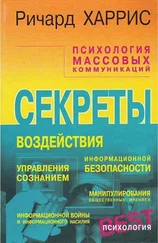Brown K. G. Examining the structure and nomological network of training reactions: A closer look at “smile sheets” // Journal of Applied Psychology. 2005. Vol. 90.
Brown V., Paulus P. B. A simple dynamic model of social factors in group brainstorming // Small Group Research. 1996. Vol. 27. No. 1.
Bunker B. Managing confl ict through large-group methods // The handbook of confl ict resolution: Theory and practice / D. Morton, P. Coleman, E. Marcus (eds). San Francisco: Wiley Imprint, 2006. P. 757–780.
Bunker B. B., Alban B. T. Editors' introduction: The large group intervention – A New Social Innovation? // The Journal of Applied Behavioral Science. 1992 a . Vol. 28. No. 4.
Bunker B. B., Alban B. T. What makes large group interventions ef ective? // The Journal of Applied Behavioral Science. 1992 b . Vol. 28. No. 4.
Bunker B. B., Alban B. T. Large Group Interventions: Engaging the Whole System for Rapid Change. San Francisco: Jossey-Bass, 1997.
Burke L. A., Hutchins H. M. A study of best practices in training transfer and proposed model of transfer // Human Resource Development Quarterly. 2008. Vol. 19. No. 2.
Burke L. A., Hutchins H. M. Training transfer: An integrative literature review // Human Resource Development Review. 2007. Vol. 6. No. 3.
Bushe G. R., Marshak R. J. Revisioning organization development: Diagnostic and dialogic premises and patterns of practice // Journal of Applied Behavioral Science. 2009. Vol. 45. No. 3.
Carlson P. The Diagnosis-Intervention Cycle // The Skilled Facilitator Fieldbook / R. Schwarz, A. Davidson, P. Carlson, S. Mckinney (eds). San Francisco: Jossey-Bass, 2005 a .
Carlson P. Basic facilitation. What Can Be Accomplished? What Cannot? // The Skilled Facilitator Fieldbook / R. Schwarz, A. Davidson, P. Carlson, S. McKinney (eds). San Francisco: Jossey-Bass, 2005 b .
Cavell T. A. Social adjustment, social performance and social skills: A three-component model of social competence // Journal of Clinical Child Psychology. 1990. Vol. 19. No. 2.
Challenger J. A. 24 trends reshaping the workplace // The Futurist. 2000. Sept/Oct.
Cheetham G., Chivers G. The refl ective (and competent) practitioner: A model of professional competence, which seeks to harmonize the refl ective practitioner and competence-based approaches // Journal of European Industrial Training. 1998. Vol. 2. No. 7.
Cheetham G., Chivers G. Towards a holistic model of professional competence // Journal of European Industrial Training. 1996. Vol. 20. No. 5.
Colema, J. The Tavistock Institute for Human Relations: Shaping the Moral, Spiritual, Cultural, Political and Economic Decline of the United States. Joseph Holding Corporation, Incorporated, 2005.
Collins D. B., Holton E. F . The ef ectiveness of managerial leadership development programs: A metaanalysis of studies from 1982 to 2001 // Human Resource Development Quarterly. 2004. Vol. 15. No. 2.
Colquitt J. A., LePine J. A., Noe R. A. Toward an integrative theory of training motivation: A meta-analytic path analysis of 20 years of research // Journal of Applied Psychology. 2000. Vol. 85.
Condon W., Ogston W . A segmentation of behavior // Journal of Psychiatric. 1968. Vol. 5. No. 2.
Cooley C. H. Human Nature and the Social Order. N.Y.: Schocken, 1964.
Cooperrider D. L., Whitney D., Stavros J. M. Appreciative Inquiry Handbook. Brunswick: Crown Custom Publishing, Inc., 2008.
Creswell J. W. Research design. Thousand Oaks, CA: Sage, 2003.
Cummings T. G., Worley C. G. Organization Development and Change. South-Western Cengage learning, 2009.
Dabbs J. Similarity of gesture and interpersonal infl uence // Journal of American Psychological Assoc. 1969. Vol. 4.
Dahrendorf R. The Modern Social Confl ict. Berkeley: University of California Press, 1988.
Davidson A. Process Designs // The Skilled Facilitator Fieldbook / R. Schwarz, A. Davidson, P. Carlson, S. Mckinney (eds), San Francisco: Jossey-Bass, 2005 a .
Davidson A. Thinking and Acting Systemically // The Skilled Facilitator Fieldbook / R. Schwarz, A. Davidson, P. Carlson, S. Mckinney (eds). San Francisco: Jossey-Bass, 2005 b .
Davidson A. Using the Group Ef ectiveness Model // The Skilled Facilitator Fieldbook / R. Schwarz, A. Davidson, P. Carlson, S. Mckinney (eds). San Francisco: Jossey-Bass, 2005 c .
Davidson A. Developing Shared Vision and Values // The Skilled Facilitator Fieldbook / R. Schwarz, A. Davidson, P. Carlson, S. Mckinney (eds). San Francisco: Jossey-Bass, 2005 d .
Davidson A. Helping Groups Clarify Roles and Expectations // The Skilled Facilitator Fieldbook / R. Schwarz, A. Davidson, P. Carlson, S. McKinney (eds). San Francisco: Jossey-Bass, 2005 e .
Davis M . Intimate Relations. N.Y.: Free Press, 1973.
Deaux K. Sex and gender // Annual Review of Psychology. 1985. Vol. 36.
Delise L. A., Gorman A., Brooks A. M. The ef ects of team training on team outcomes: A metaanalysis // Performance Improvement Quarterly. 2010. Vol. 22. No. 4.
DeNisi A. S., Kluger A. N. Feedback ef ectiveness: Can 360-degree appraisals be improved? // Academy of Management Executive. 2000. Vol. 14. No. 1.
Denmark L. Styles of leadership // Psychology of Women Quartery. 1977. Vol. 2.
Derlega V. J., Chaikin A. L. Sharing Intimacy: What We Reveal to Others and Why. Englewood Clif s, NJ: Prentice-Hall. 1975.
Deutsch M . A personal perspective on the development of social psychology in the twentieth century // Reflections on 100 Years of Experimental Social Psychology / A. Rodrigues (ed.). N.Y.: Basic Books, 1999.
Deutsch M. The resolution of confl ict: Constructive and destructive processes. New Haven; L.: Yale University Press, 1973.
Di Salvo V. S., Nikkel E., Monroe C. Theory and practice: A fi eld investigation and identifi cation of group member’s perceptions of problems facing natural work groups // Small Group Behavior. 1989. Vol. 20. No. 4.
Diehl M., Stroebe W . Productivity loss in brainstorming groups: Toward the solution of a riddle // Journal of Personality and Social Psychology. 1987. Vol. 53. No. 3.
Eagly A., Jonson B. Gender and leadership // Psychological Bulletin. 1990. Vol. 108.
Eisler K. M., Frederiksen L. W . Perfecting Social Skills: A Guide to Interpersonal Behavior Development. N.Y.: Plenum Publishing Corporation, 1980.
Ekman P., Priesten W. Facial sings of emotional experience // Journal of Social Psychology. 1980. Vol. 39.
Erickson E. H. Identity. Youth and Crisis. L.: Faber & Faber, 1968.
Escalas J., Bettman J. You are what they eat: The infl uence of reference groups on consumers’ connections to brands // Journal of Consumer Psychology. 2003. Vol. 13. No. 3.
Feifel H., Strack S. Coping with confl ict situations: Middle-aged and elderly men // Psychology and Aging. 1989. Vol. 4. No. 1.
Fenigstein A. Self-consciousness, self-attention and social interaction // Journal of Personality and Social Psychology. 1979. No. 37.
Field L. Skilling Australia. Melbourne: Longman, 1989.
Field L., Ford B. Managing Organizational Learning: From Rhetoric to Reality. Melbour ne: Longman, 1995.
Fiske S., Taylor S. Social cognition // McGraw-Hill Series in Social Psychology. 1994.
Fogelson R. D. Person, Self, Identity: Some Anthropological Retrospects, Circumspects, and Prospects // Psychological Theories of the Self / B. Lee (ed.). N.Y.: Plenum Press, 1982.
Читать дальше
Конец ознакомительного отрывка
Купить книгу












